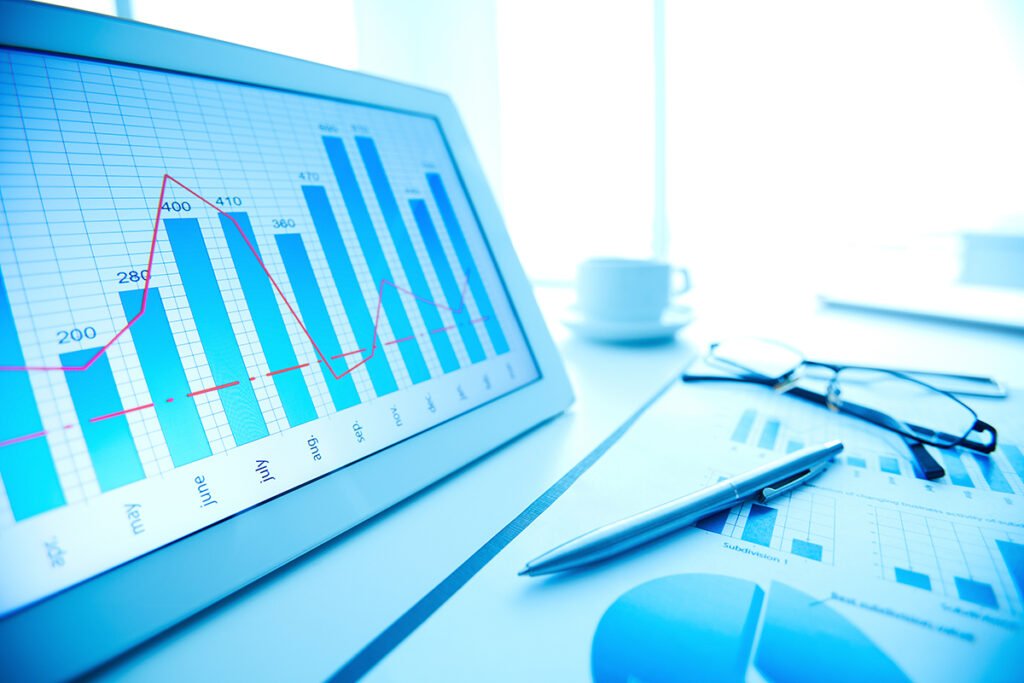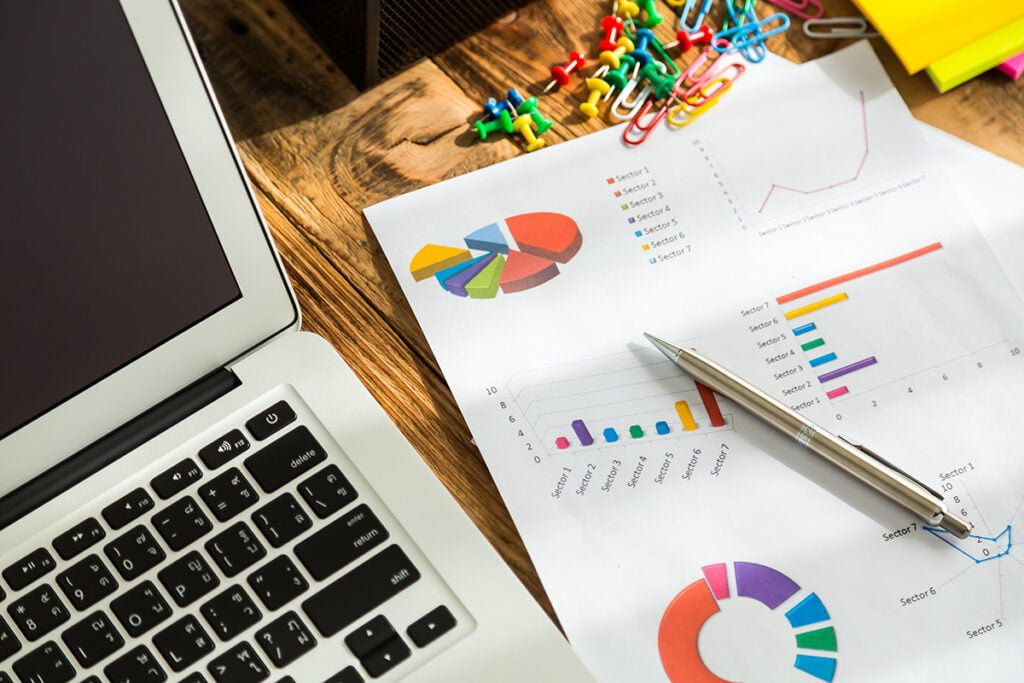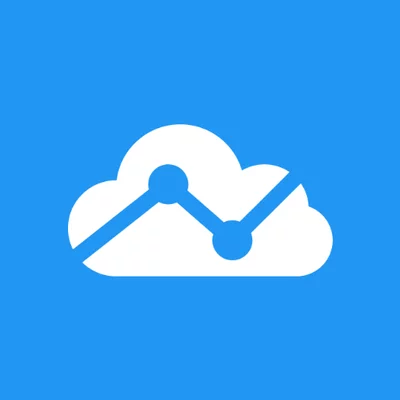With an increasing number of cryptocurrency investors entering the market, it’s crucial to have the right tools and platforms at your disposal for in-depth analysis and informed decision-making. In this section, we will highlight some of the most popular crypto analysis tools and platforms available today. In this article, we’re introducing the best trading analysis tools in the field to start with. Also, we have reviewed them so you can have a closer look at each one of them.
Disclosure! This List contains links that may earn us a small commission at no extra cost to you. Our website’s metrics and compensation determine the order of the List. Please don’t consider it as ranking and evaluate items individually.Track All Markets
A social media, a charts analysis platform, and a mobile app. The company was founded in 2011, and now, every trader or investor needs to get started with TrandingView.
Crypto Analytics Platform | Buy Cryptocurrencies
A cloud-based platform that empowers crypto traders and investors with comprehensive data aggregation, trend identification tools, on-chain analysis for DeFi, portfolio management, price tracking, research resources, and education.
AI-Driven Crypto Research Platform
Find the best crypto research, price predictions, forecasts, signals, and NFT analysis at Token Metrics. We use AI and Machine learning to help investors and traders to make money in Crypto.
Actionable On-chain market intelligence and market data analytics
CryptoQuant delivers market and on-chain data via API or directly into Python, R, Excel, and many other tools. Save time and money by getting the data you need in your desired format.
Glassnode brings data intelligence to the blockchain and cryptocurrency space. Glassnode builds applications that provide new ways of delivering insights into blockchains and cryptocurrencies.
See what other crypto traders are missing
A comprehensive market intelligence platform for cryptocurrencies, focusing on clean and reliable data feeds, low-latency signals, and custom market analysis and leveraging on-chain, social, development, and other data sources.
Crypto News Today, Prices and Actionable Insights
Coinfeeds is a social aggregator for DeFi projects. Twitter, Reddit, Github, and Discord data are used to analyze sentiment and connections with AI technology.
Cryptocurrency market analyses
DYOR analyses the cryptocurrency market for you. Save your time, and find the best trading opportunities on Binance, KuCoin and Gate.io (BTC & USDT pairs). DYOR.net provides a lot of tools that will make your cryptocurrency trading more efficient
Community-powered blockchain analytics platform
Breadcrumbs is a blockchain analytics tool that empowers users to monitor and investigate cryptocurrencies. Follow addresses incoming and outgoing transactions, time, amount, and further information.
Empowering Blockchain Intelligence
IntoTheBlock provides you with unique insights for every crypto asset to make informed investment decisions. Their 50+ indicators and signals provide a unique view of every crypto asset’s behavior.
Market Analysis Tools Guide
Guide to Crypto Market Analysis Tools
Cryptocurrency has emerged as a highly popular and lucrative investment opportunity in recent years. With its rapidly changing market trends and high volatility, it can be challenging for investors to make informed decisions. This is where crypto analysis comes in handy.
Crypto analysis tools provide valuable insights into the market, helping investors understand trends and predict future movements. In this guide, we will explore different types of crypto analysis tools and how to select the most suitable ones for your investment needs.
- Crypto analysis tools are essential for successful investments in the cryptocurrency market.
- Various types of tools, such as chart analysis, graph analysis, and technical analysis, provide valuable insights into the market.
- Investors should consider factors like accuracy, ease of use, and compatibility with different cryptocurrencies when selecting analysis tools.
- Crypto graph analysis and chart analysis help analyze price trends and patterns, while technical analysis provides data-driven investment decisions.
- Several popular crypto analysis tools and platforms are available to investors, each with its own features and limitations.
Understanding Crypto Analysis Tools
Crypto analysis tools are essential for evaluating and understanding the cryptocurrency market. As digital assets continue to gain popularity and acceptance, investors must have access to reliable and accurate market analysis information. Crypto analysis tools provide such information, helping investors make informed decisions based on data-driven insights.
The Importance of Crypto Analysis Tools
Despite the volatile nature of the crypto market, it’s possible to make profitable investments using well-informed strategies. Crypto analysis tools play a crucial role in achieving this. These tools help investors to analyze market trends, historical data, and identify patterns that can help predict future price movements.
With crypto analysis tools, investors can better understand the market’s behavior, identify emerging trends, and minimize risks. Without analysis tools, investments in the cryptocurrency space can be risky and unpredictable.
The Different Types of Crypto Analysis Tools
Several types of crypto analysis tools are available, and each has a specific purpose. Understanding each type’s purpose can help investors use them effectively and maximize their returns.
| Type of Tool | Description |
|---|---|
| Chart analysis tools | These tools help investors understand historical price data and identify patterns that can help predict future price movements. |
| Graph analysis tools | These tools help investors visualize and interpret market trends, making it easier to identify potential buy and sell opportunities. |
| Technical analysis tools | These tools provide investors with a detailed evaluation of market conditions by analyzing trading volumes, price movements, and other relevant data. |
Benefits of Crypto Analysis Tools
The use of crypto analysis tools has several benefits that can help investors become more successful in their investments:
- Access to real-time market data, allowing investors to make informed decisions promptly
- Identification of potential buy and sell opportunities
- Minimization of investment risks through accurate market predictions
- Better understanding of market behavior and trends to maximize returns
Overall, crypto analysis tools are a valuable asset for investors looking to make informed investment decisions in the volatile cryptocurrency market.
Types of Crypto Analysis Tools
Crypto analysis tools come in different shapes and sizes, each offering unique functionalities that cater to the needs of various investors. In this section, we will explore the most common types of crypto analysis tools and their purposes.
Crypto Chart Analysis
Crypto chart analysis is a fundamental tool for traders and investors who want to understand the historical market performance of a particular cryptocurrency or the entire market. Chart analysis helps identify trends, patterns, and support and resistance levels, which can assist in predicting future market movements.
There are different types of charts used in crypto chart analysis, including:
- Line chart – shows the price of a cryptocurrency over a period of time using a simple line.
- Candlestick chart – displays the open, high, low, and close prices of a cryptocurrency within a specific time frame, using candlesticks.
- Bar chart – uses vertical lines to show the price range of a cryptocurrency within a specific time frame.
Regardless of the type of chart used, crypto chart analysis provides valuable insights into the market that can assist investors in making informed decisions.
Crypto Graph Analysis
Crypto graph analysis is an advanced tool that helps visualize the trends and patterns in the cryptocurrency market using graphical representations. It is particularly useful for technical analysis, as it helps identify price trends and patterns over time.
There are different types of graphs used in crypto graph analysis, including:
- Line graph – shows the trend of a cryptocurrency over a period, using a simple line.
- Area graph – displays the cumulative trading volume of a cryptocurrency over time.
- Bar graph – uses vertical bars to display the volume of trading activity of a cryptocurrency over a period.
Overall, crypto graph analysis provides comprehensive insights into the market that can assist investors in making informed investment decisions.
Technical Analysis for Crypto
Technical analysis is a versatile tool used to evaluate market conditions and identify potential trading opportunities. It involves analyzing charts and graphs to identify trends, support and resistance levels, and other indicators that suggest future market movements.
There are different types of technical analysis techniques used in crypto trading, including:
- Moving averages – used to smoothen the price movements of a cryptocurrency, providing a better understanding of long-term trends.
- Bollinger Bands – used to measure volatility in the market and identify potential buy and sell opportunities.
- Relative Strength Index (RSI) – used to measure the strength of the market and identify potential reversals.
Technical analysis is a critical tool for any investor looking to make data-driven investment decisions.
Before investing in the crypto market, it’s essential to understand how crypto analysis tools work. These tools utilize complex algorithms and data sources to provide accurate market analysis. They help investors in making informed decisions by analyzing market trends, historical data, and making predictions.
Algorithms Used in Crypto Analysis Tools
Crypto analysis tools use various algorithms to analyze different aspects of the market. These algorithms analyze market trends and patterns, calculate moving averages, and identify support and resistance levels. Some of the commonly used algorithms in crypto analysis tools are:
- Relative Strength Index (RSI)
- Exponential Moving Average (EMA)
- Simple Moving Average (SMA)
- Bollinger Bands
These algorithms work together to provide a comprehensive analysis of the market, helping investors make better decisions.
Data Sources Used in Crypto Analysis Tools
Data sources play a crucial role in the accuracy of crypto analysis tools. These tools rely on accurate data to provide reliable analysis. Some of the common data sources used by crypto analysis tools are:
| Data Source | Description |
|---|---|
| Cryptocurrency exchanges | Provides real-time updates on cryptocurrencies |
| Blockchain explorers | Provides transaction data on the blockchain network |
| Social media platforms | Provides insights into market sentiment and trends |
Combining data from multiple sources provides a holistic view of the market, helping investors make more informed decisions.
Reliability and Limitations of Crypto Analysis Tools
While crypto analysis tools are beneficial for investors, they have their limitations. These tools rely on historical data and market trends to make predictions, which is not always guaranteed to be accurate. In addition, unforeseen events, such as global events or regulatory changes, can significantly impact the market and render analysis tools unreliable.
It’s essential to use crypto analysis tools as a supplement to other factors, such as fundamental analysis and market research, when making investment decisions in the crypto market.
Selecting the Best Crypto Analysis Tools
With the various crypto analysis tools available, it can be overwhelming to choose the best one for your needs. Here are some factors to consider:
- Accuracy: Choose tools that have a good track record of accurate analysis.
- User-Friendliness: Select tools that are easy to use and have an intuitive interface.
- Cryptocurrency Compatibility: Ensure that the tool is compatible with the cryptocurrencies you are interested in analyzing.
- Compatibility with Your Budget: Some analysis tools can be expensive or have recurring fees, so choose a tool that fits your budget.
- Customer Support: Look for tools with reliable customer support ready to assist you when needed.
Comparison Table of Popular Crypto Analysis Tools
| Tool Name | Description | Price | Cryptocurrencies |
|---|---|---|---|
| Coinigy | An all-in-one crypto trading platform with features such as charting, portfolio tracking, and trading automation. | $18.66 per month | 100+ |
| TradingView | A platform used by traders worldwide for charting, analysis, and trade ideas. | Free with the option to upgrade to a paid plan | 50+ |
| CoinTracking | A cryptocurrency portfolio management tool that tracks profits, losses, and taxes. | Free with the option to upgrade to a paid plan | 4000+ |
| CryptoCompare | An all-in-one crypto data platform with real-time prices, news, and portfolio tracking. | Free with the option to upgrade to a paid plan | 5000+ |
These are just a few popular crypto analysis tools available. Always make sure to do your own research and choose the tool that best fits your needs.
When it comes to analyzing the cryptocurrency market, graph analysis is one of the most important tools at an investor’s disposal. Crypto graph analysis involves using visual charts and graphs to identify patterns and trends in the market, which can help predict future movements and inform investment decisions.
One of the key benefits of crypto graph analysis is its ability to display large amounts of data in a clear and concise format. These graphs can provide a quick snapshot of market trends, allowing investors to quickly react to changes in the market.
Some of the most common types of graphs used in crypto analysis include line graphs, bar graphs, and candlestick charts. Line graphs are useful for showing trends over time, while bar graphs can provide a snapshot of price movements over a specific period of time. Candlestick charts are particularly useful for identifying patterns in the market, such as support and resistance levels.
| Graph Type | Description |
|---|---|
| Line Graph | Displays trends over time |
| Bar Graph | Provides a snapshot of price movements |
| Candlestick Chart | Identifies patterns in the market |
One of the key challenges with crypto graph analysis is the volatility of the market. Prices can fluctuate rapidly, making it difficult to identify long-term trends. As a result, crypto investors should use graph analysis in conjunction with other analysis tools to gain a comprehensive understanding of the market.
Overall, crypto graph analysis is an essential tool for any investor looking to succeed in the cryptocurrency market. By providing valuable insights into price trends and patterns, it can help investors make informed decisions and stay ahead of the curve.
Introduction to Crypto Chart Analysis
Crypto chart analysis is a crucial part of understanding the historical patterns and trends of the cryptocurrency market. This type of analysis involves analyzing price movements on a chart to identify potential future movements and inform investment decisions.
The most commonly used charts in crypto chart analysis are line charts, bar charts, and candlestick charts. Line charts are the most basic type and show the closing price of the asset over a specified period. Bar charts provide a more detailed view of the price movement, showing the opening, high, low, and closing prices. Candlestick charts show the same information as bar charts but with a visual representation of the price movement for each period.
| Chart Type | Information Displayed |
|---|---|
| Line Chart | Closing price |
| Bar Chart | Opening, high, low, and closing price |
| Candlestick Chart | Opening, high, low, and closing price with a visual representation of price movement |
Each chart type provides a slightly different perspective on price movements and can reveal valuable insights into market trends. For example, candlestick charts help traders identify patterns and trends that may not be visible on other chart types.
It is essential to have a solid understanding of chart analysis and technical analysis tools to conduct successful crypto trading. In the next section, we will explore how to apply technical analysis techniques specifically to the crypto market.
Understanding Cryptocurrency Graph Analysis
Cryptocurrency graph analysis is an essential tool for investors who want to obtain insights into market trends and patterns. It involves visualizing cryptocurrency data using graphs, charts, and other graphical representations. The data is then analyzed to predict future market movements and make informed investment decisions.
There are various techniques used in cryptocurrency graph analysis, such as:
- Candlestick charts: This type of chart displays the price movements of a cryptocurrency within a specific time frame, such as a day or an hour. It is a powerful tool for identifying trends and patterns in the market.
- Line charts: This type of chart displays the price movements of a cryptocurrency over a period of time using a simple line. It is useful for analyzing long-term trends and patterns.
- Bar charts: This type of chart displays the opening and closing prices of a cryptocurrency within a specific time frame, as well as the high and low prices. It is useful for analyzing volatility in the market.
By using these different techniques, investors can gain a deeper understanding of the market and make better investment decisions.
Below is an example of a candlestick chart that shows the price movements of Bitcoin over a 24-hour period:
As you can see from the chart, Bitcoin’s price fluctuated throughout the day, reaching a peak in the afternoon before dropping down again in the evening. By analyzing this data, investors can make informed decisions about when to buy or sell.
Understanding Cryptocurrency Chart Analysis
Cryptocurrency chart analysis is a vital tool for any investor seeking to make informed decisions based on historical price data. Charts help visualize market trends and patterns, providing valuable insights into the current market conditions.
There are several types of charts used in cryptocurrency chart analysis:
- Candlestick charts
- Line charts
- Bar charts
Candlestick charts are the most commonly used chart type in cryptocurrency chart analysis. They display the opening and closing prices, as well as the highest and lowest prices within a certain period, in a visually appealing format. Candlestick charts can provide valuable insights into the psychology of market participants and help predict future market movements.
Line charts are a simpler alternative to candlestick charts. They only display the closing price for a certain period, providing a smoother, more straightforward view of market trends.
Bar charts display the opening, highest, lowest, and closing prices for a certain period in a bar format. They are less commonly used than candlestick charts and may not provide as much detailed information. However, they can still be a valuable tool for cryptocurrency chart analysis.
When analyzing charts, it’s important to understand the various patterns that can emerge:
| Pattern | Description |
|---|---|
| Head & Shoulders | A bearish reversal pattern that indicates a potential shift in market trend. |
| Descending Triangle | A bearish continuation pattern that suggests a price breakout to the downside. |
| Ascending Triangle | A bullish continuation pattern that suggests a price breakout to the upside. |
| Pennant | A bullish continuation pattern that indicates a temporary consolidation before a price breakout. |
| Double Top | A bearish reversal pattern that suggests a potential shift in market trend. |
| Double Bottom | A bullish reversal pattern that suggests a potential shift in market trend. |
Understanding these patterns can provide valuable insights into market movements and help investors make informed decisions. However, it’s important to note that patterns should not be the sole factor in decision-making. They should be viewed in conjunction with other analysis tools, such as technical indicators and fundamental analysis.
Overall, cryptocurrency chart analysis is an essential tool for investors looking to stay ahead of the market. By understanding the various chart types and patterns, investors can gain valuable insights into market movements and make informed decisions based on historical price data.
The Importance of Crypto Technical Analysis
Crypto technical analysis is an essential tool for investors looking to make data-driven decisions in the fast-paced world of cryptocurrency. It involves the use of statistical trends and patterns to predict future price movements and market trends. There are several reasons why crypto technical analysis is critical for investors:
- Provides a systematic approach: Technical analysis provides a structured approach to evaluating market conditions, reducing the impact of emotions and biases that can cloud judgment. By using a systematic approach, investors can make more consistent and informed decisions.
- Aids in risk management: By providing insight into potential price movements, technical analysis can assist investors in managing risk. This allows them to identify entry and exit points for trades, set stop-loss orders, and more.
- Offers a long-term perspective: Technical analysis can help investors identify long-term trends in the market, allowing them to make informed investment decisions for the future.
There are several technical indicators that investors commonly use in crypto technical analysis, including:
| Indicator | Description |
|---|---|
| Moving averages | Used to identify trends and support/resistance levels |
| Relative Strength Index (RSI) | Measures the strength of buying and selling pressure in the market |
| Bollinger Bands | Used to measure volatility and identify potential price breakouts |
| Fibonacci retracements | Used to identify potential price levels where a retracement may occur |
By applying these technical indicators, investors can gain a better understanding of market conditions, identify potential trading opportunities, and manage risk.
However, it’s important to note that technical analysis is not foolproof. While it can provide valuable insights, it should be used in conjunction with other forms of analysis and should not be the sole basis for investment decisions.
Applying Technical Analysis for Crypto
Technical analysis is an essential tool for evaluating market conditions and making informed investment decisions. While it’s commonly used in traditional trading, technical analysis can also be applied to the crypto market. In this section, we’ll explore some of the best technical analysis techniques for crypto.
Determining Support and Resistance Levels
Support and resistance levels are critical in technical analysis. Support levels indicate the price point at which buyers enter the market, while resistance levels indicate the price point at which sellers enter the market. By analyzing support and resistance levels, investors can make informed decisions on when to buy or sell.
When it comes to crypto, support and resistance levels can be determined by analyzing historical price data. For example, if a particular cryptocurrency has consistently bounced off a specific price level multiple times, that price level could be considered a strong support level. On the other hand, if a cryptocurrency has struggled to surpass a particular price level, that level could be considered a resistance level.
Using Trend Lines
Trend lines are another crucial tool in technical analysis. A trend line is a line drawn between two or more price points in a chart, which indicates the general direction of the trend. In crypto trading, trend lines can help investors identify potential buying or selling opportunities.
It’s essential to keep in mind that trend lines are not an exact science and should be used in conjunction with other technical analysis tools. In addition, it’s crucial to use trend lines that are relevant to the time frame of the chart being analyzed.
Using Moving Averages
Moving averages are a popular tool in technical analysis that smooths out price data by creating a single line that reflects the average price over a particular time period. This line can help investors identify potential price trends and reversals.
In crypto trading, the two most commonly used moving averages are the simple moving average (SMA) and the exponential moving average (EMA). The SMA calculates the average price over a specific timeframe, while the EMA places more weight on recent prices. It’s essential to understand the differences between these two moving averages to determine which is suitable for your specific analysis needs.
| Simple Moving Average (SMA) | Exponential Moving Average (EMA) |
|---|---|
| Calculates the average price over a specific timeframe | Places more weight on recent prices |
| Less responsive to recent price changes | More responsive to recent price changes |
By applying these technical analysis techniques, investors can gain valuable insights into the crypto market and make data-driven investment decisions. However, it’s essential to remember that no analysis tool is 100% accurate and should always be used in conjunction with other research and analysis.
Different Usages of Analysis Tools.
Technical Indicators: You’ll find many supported technical indicators in analysis tools, and you can use them seamlessly on your charts.
Metrics: Different metrics will be available with over 10 years of data like market cap, volatility, market share, and more. Also, having that amount of metrics in one place will help you get an overview of how the market is moving.
On-Chain Data: You’ll get access to accurate graphs of on-chain data like the number of transactions per day, amount of coins transacted, and more. On-chain data is public. Meaning, the information you’re getting is transparent and accurate.
Social Analysis: Social media is related to market movements. Also, it can move the market itself. Social analysis keeps you ahead of the market changes. View different reports and metrics like social dominance, social trends, trending words, and more.
Technical Indicators.
Technical indicators are a chart analysis tool that helps traders understand charts and analyze them. Mainly, technical indicators are used to generate buy/sell signals. Thus, traders can act on price changes and make decisions.
Technical indicators come within most of the analysis tools platforms, and you can easily apply any of the supported technical indicators on your chart.

Metrics.
Like any other metrics, trading metrics are performance measurements based on historical data that’s graphed in a chart. There are hundreds of trading metrics that you can use with data that gets up to 10 years. However, processing that much data is a hard job for humans.
On the other hand, analysis tools managed to accumulate over 10 years of data for different metrics that you can seamlessly view and edit with different tools. Some of the popular trading metrics are market cap, market dominance, and volatility.

On-Chain Data.
On-chain data is based on on-chain transactions. Further, On-chain transactions are transactions that miners validate and considered valid only when the blockchain is updated.
On the blockchain, each block has all the new transactions recorded on that block with all the information regarding each transaction like amount, public addresses, miner fees, and more. Analysis tools retrieve data from the blockchain. Meaning such data will be transparent and accurate.
Social Analysis.
There is no doubt that social media plays a major role in moving the market. For that reason, many platforms started applying algorithms to analyze social media posts inside and outside the cryptocurrency community.
On such platforms, you will get different social metrics like social dominance, social trends, social engagement, and more. Furthermore, they display the most trending words in social trends, which will refer to how the market is moving.

Analysis Tools and Exchanges.
It is essential to make sure you have chosen the best exchange platform for you before purchasing or subscribing to any of the previously mentioned analysis platforms. Here are 3 reasons why:
- Liquidity: Defines how easy can you buy or sell an asset. An exchange with high liquidity will have hight supply and demand; therefore, you can quickly sell and buy assets without having to wait for a buyer.
- Security: It is an important factor that must have the most impact on your decision; Always make sure to pick a secure exchange platform.
- Fees: The lower the fees, the more profit you will make. Analysis tools will be more powerful if your exchange platform has low fees.
In simple words, your exchange platform should integrate with your analysis tool so that your trades become more profitable. For further information on exchange platforms, make sure to check our review for the best exchange platforms here.
Charting Tools Will Help You.
As you know, a charting tool helps you to visualize various trading indicators. Furthermore, you can draw trends lines in order to predict the market prices. Practicing and learning different analysis techniques will definitely grow your skill in analyzing the market.
You might think that you can rely on automated trading instead of learning how to trade yourself. You might be right partly. But also remember that you can observe some situations that a crypto trading bot can’t such as some political decisions that impact the crypto market and more. That’s why it’s always good to learn how to use a charting tool and all of its features.

Conclusion
As the cryptocurrency market continues to grow, so does the need for effective market analysis tools. With the right tools, investors can gain valuable insights into the market and make informed investment decisions. In this guide, we have explored the different types of crypto analysis tools available, including chart and graph analysis, technical analysis, and various platforms.
It is essential to understand that these tools have their limitations and that their accuracy is not always guaranteed. However, by combining various tools and applying different analysis techniques, investors can increase their chances of success in the market.
Remember to carefully consider the factors that matter most to your investment goals, such as accuracy, ease of use, and compatibility with different cryptocurrencies, when selecting the best crypto analysis tools for your needs.
We hope that this guide has helped you gain a better understanding of crypto market analysis tools and how to use them to your advantage. It is time to start exploring these tools and applying them to your investment strategy, so you can make data-driven decisions and achieve your investment objectives. Best of luck on your investment journey!
Market Analysis Tools F.A.Q
What are crypto analysis tools?
Crypto analysis tools are software or platforms that provide investors with data and insights to analyze the cryptocurrency market. These tools use algorithms and data sources to track market trends, historical data, and technical indicators.
Why are crypto analysis tools essential?
Crypto analysis tools are essential for understanding the cryptocurrency market as they help investors make informed decisions based on accurate data and analysis. These tools can provide insights into market trends, price patterns, and potential investment opportunities.
What types of crypto analysis tools are available?
There are various types of crypto analysis tools available, including chart analysis tools, graph analysis tools, and technical analysis tools. Each type serves a specific purpose in analyzing different aspects of the market and can provide valuable information for investors.
How do crypto analysis tools work?
Crypto analysis tools work by analyzing market data, historical price data, and technical indicators using algorithms and data sources. They provide visual representations, charts, and graphs to help investors interpret market trends and make informed decisions.
How can I select the best crypto analysis tools?
When selecting crypto analysis tools, consider factors such as accuracy, ease of use, compatibility with different cryptocurrencies, and the specific features and functionalities offered. It is also important to choose tools that align with your investment strategy and goals.
What is crypto graph analysis?
Crypto graph analysis focuses on analyzing price trends and patterns using graphical representations. It helps investors visualize market movements and identify potential opportunities or risks based on the patterns observed.
What is crypto chart analysis?
Crypto chart analysis involves analyzing historical price data using charts. By studying chart patterns and indicators, investors can gain insights into market trends, support and resistance levels, and potential entry or exit points in their investments.
How does cryptocurrency graph analysis help in investments?
Cryptocurrency graph analysis helps investors understand the overall trend and behavior of a cryptocurrency. By analyzing graphical representations of price movements, investors can make predictions and identify potential buy or sell opportunities.
How does cryptocurrency chart analysis assist in investment decision-making?
Cryptocurrency chart analysis helps investors analyze historical price data and identify patterns or signals that can guide investment decisions. By studying different chart types and indicators, investors can make more informed choices based on past market behavior.
Why is crypto technical analysis important?
Crypto technical analysis is important as it helps investors evaluate market conditions, identify trends, and make data-driven investment decisions. By studying technical indicators and patterns, investors can better understand the market sentiment and potential price movements.
How can I apply technical analysis techniques to the crypto market?
To apply technical analysis techniques to the crypto market, investors can use tools such as support and resistance levels, trend lines, moving averages, and various chart patterns. These techniques can help identify potential entry or exit points for investments.
What are some popular crypto analysis tools and platforms?
Some popular crypto analysis tools and platforms include CoinMarketCap, TradingView, Coinigy, and CryptoCompare. These platforms offer a range of features, such as real-time data, charting tools, technical indicators, and portfolio management capabilities.
Why Is Market Data Important?
Collecting market data as an analysis tool requires a lot of work and integrating with various exchanges, normalizing data, and calculating average prices, and much more that has to be done continuously with no errors or mistakes.
The blockchain enables analysis tools to collect accurate data on the market. And by analyzing such data by using charting tools and platforms you can predict where the market is going; therefore, you can make decisions based on knowledge.

What to Look for in Analysis Tools?
There are many factors that will be the judge between different analysis tools so that you can get the most advantage of the platform while you’re using it, make sure to check “True” on each of the following points before subscribing to an analysis tool.
- Accuracy: Of course, make sure to pick a platform that provides accurate data because that data will be the backbone of your trades decisions. You can always learn more about platform’s data accuracy by reading users reviews and comparting its data to other platforms.
- Tranparency: It’s important to get transparent data that is not affected by any politics or news. You can also use users reviews to make sure of this one.
- Plenty of metrics: There are metrics more than you can imagine, thousands and thousands of crypto metrics and each one of them provides you with intel. Look for a platform that has the most number of metrics, especially the ones that you prefer.
- Pricing: You can get analysis tools for a very good pricing. Look for a platform that has a reasonable price if it checks with accuracy, transparency.
Also, you should know that there are analysis tools that provide data for free, if you find that it provides you with all the features you need, give them a shot.
How to Learn Crypto Technical Analysis?
In today’s world, there are many resources you can use for learning, here some ways that can get you started:
- Youtube: There are traders that make crypto analysis tutorials and teaches the basics of market analysis. It’s always good to watch an expert traders process of thinking.
- Books: You can purchase books that teaches you the market; this one will enrich your infomation.
Knowledge has no limit, if you are an expert or a novice trader, you should always look for new opportunities to learn more and more, especially when it comes to crypto trading.
Finally, we would love to hear from you in the comments section below, so make sure to comment your thoughts and we will reply to you.










